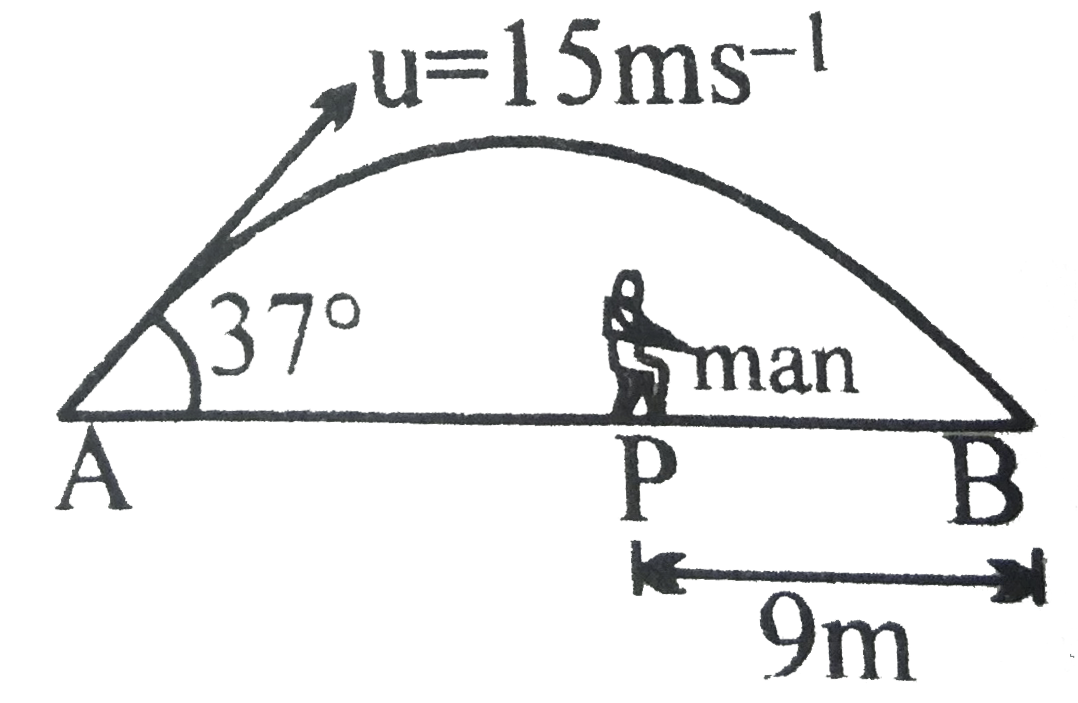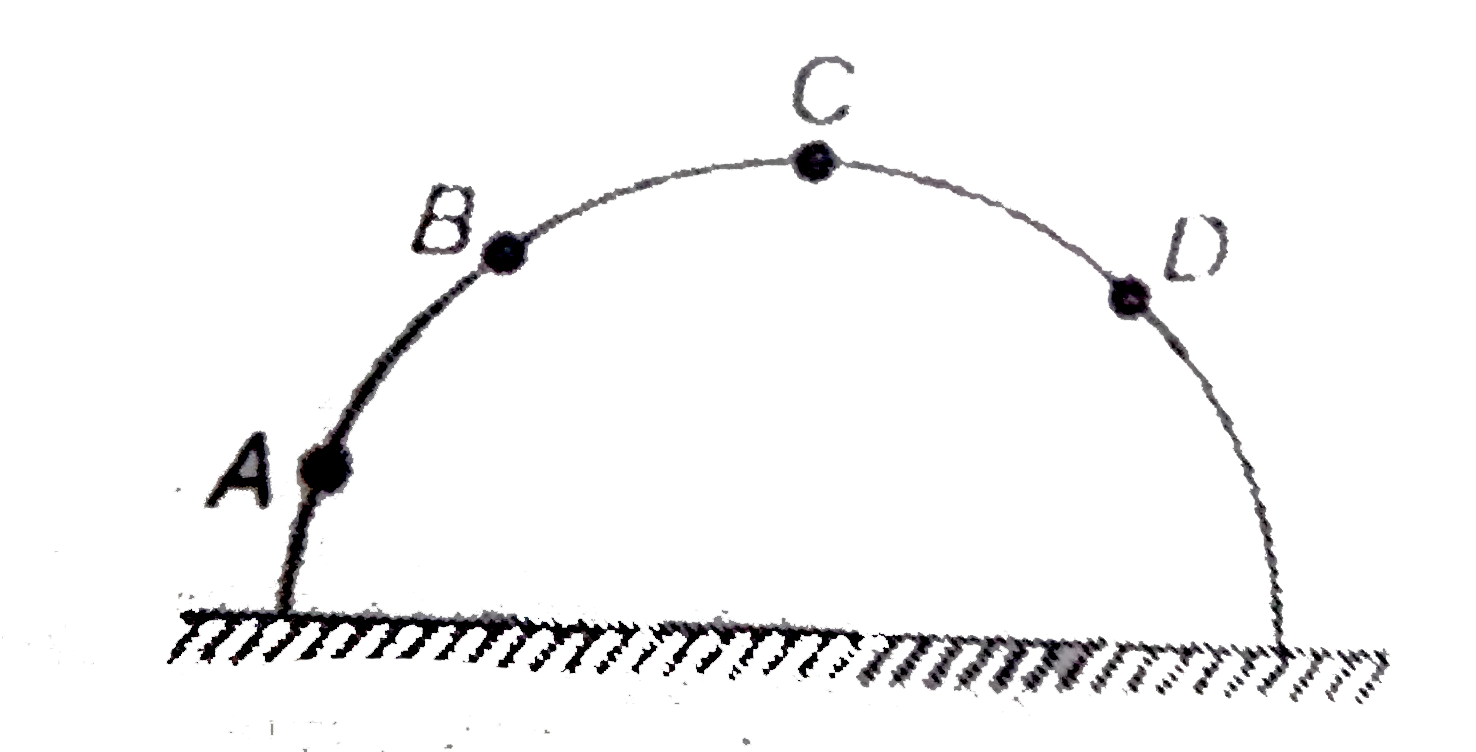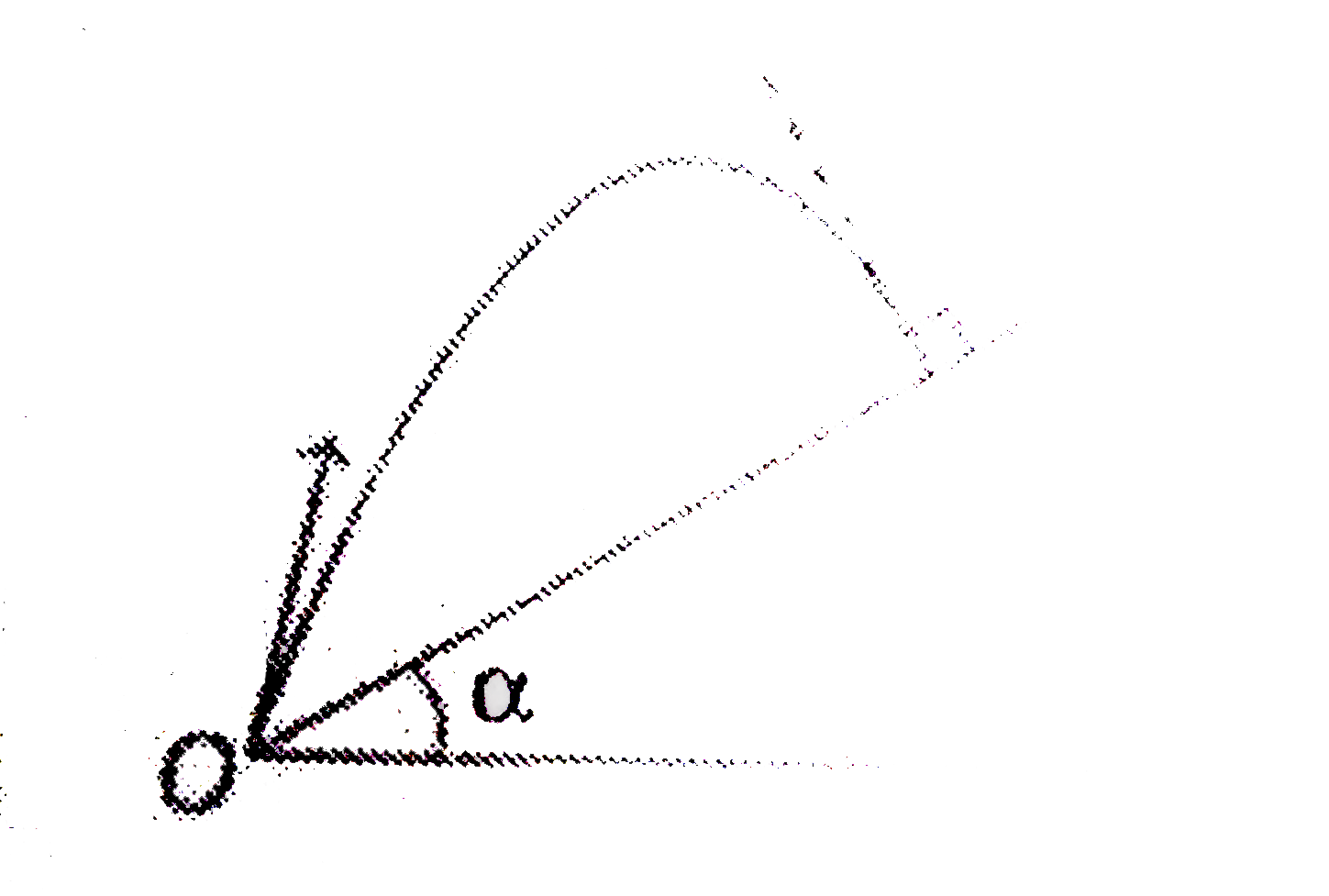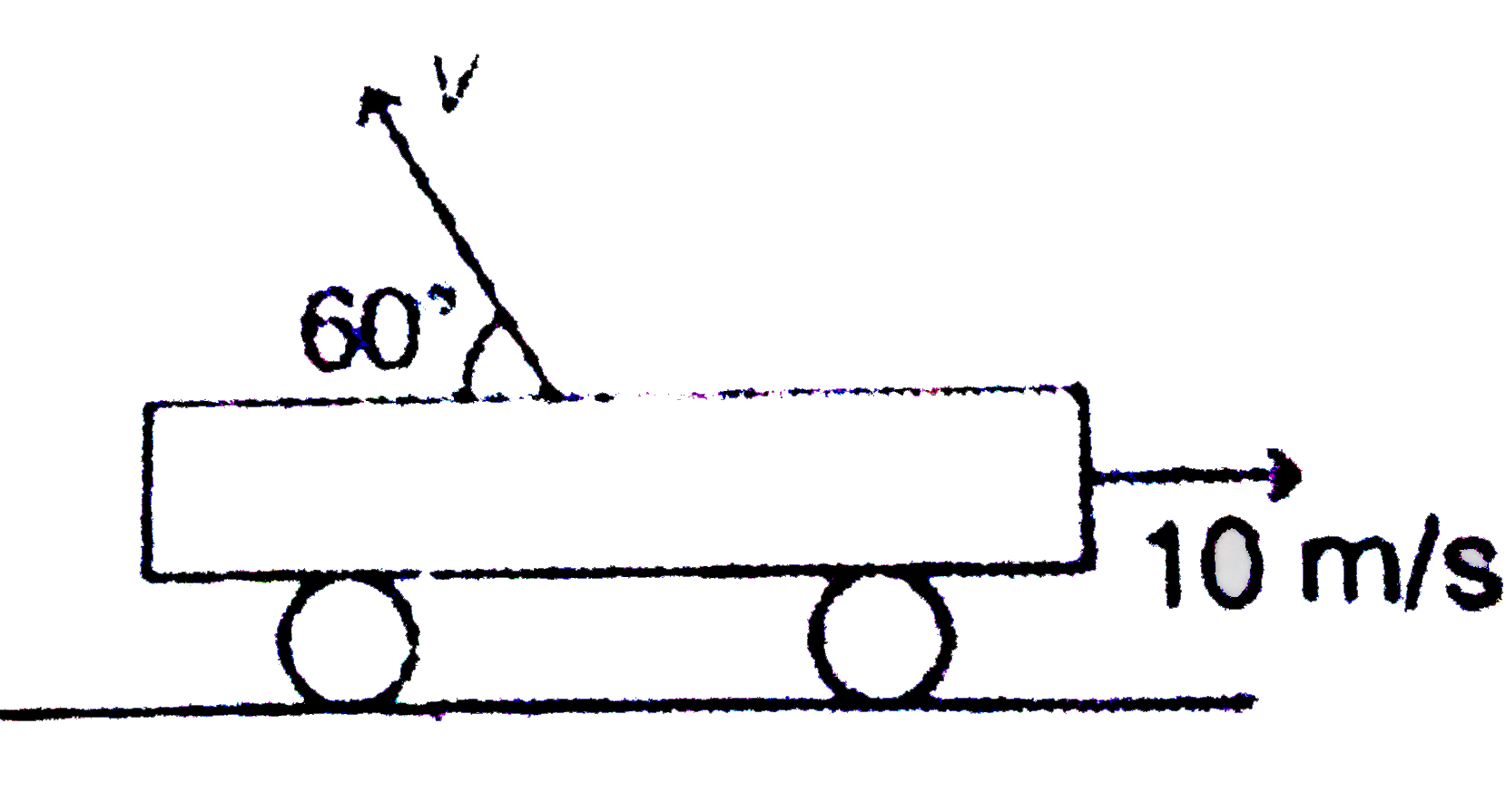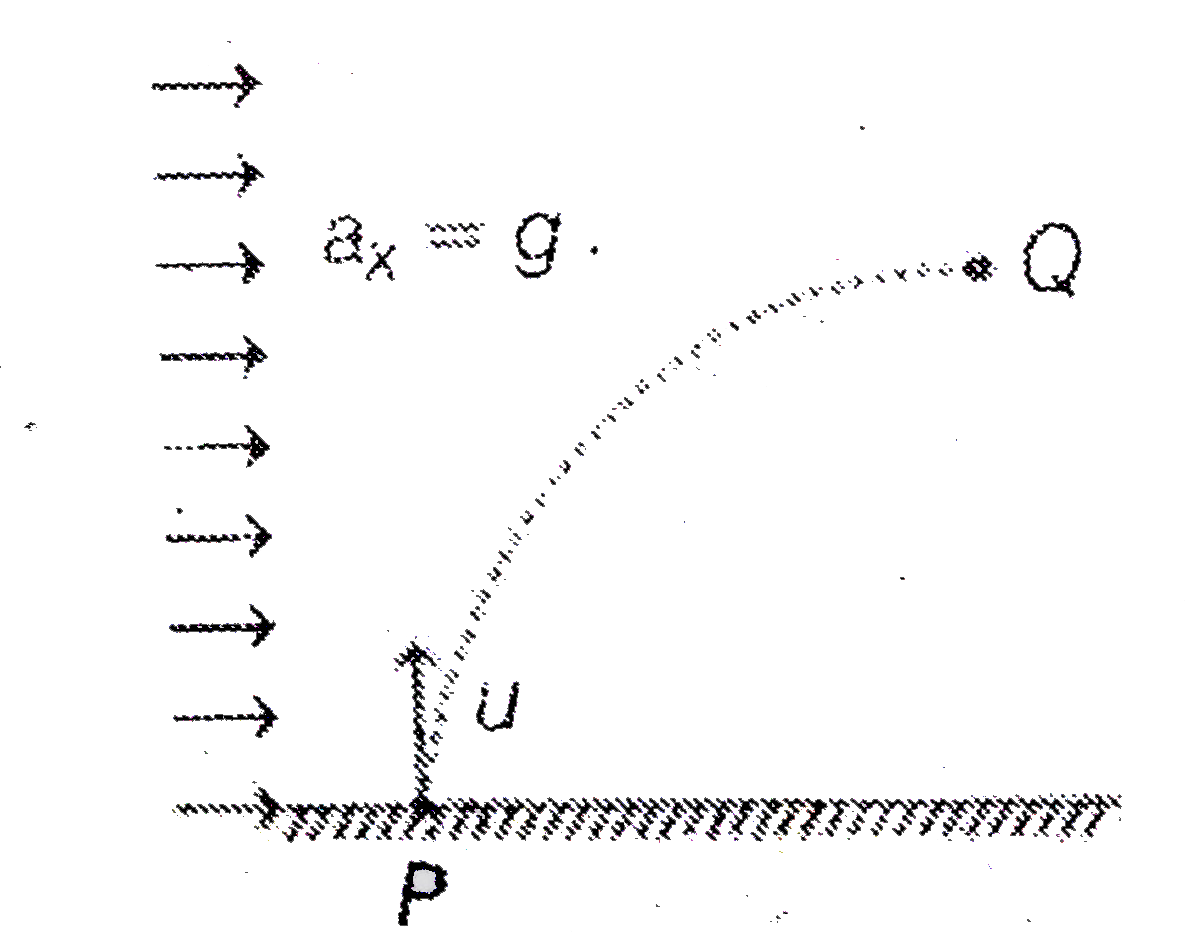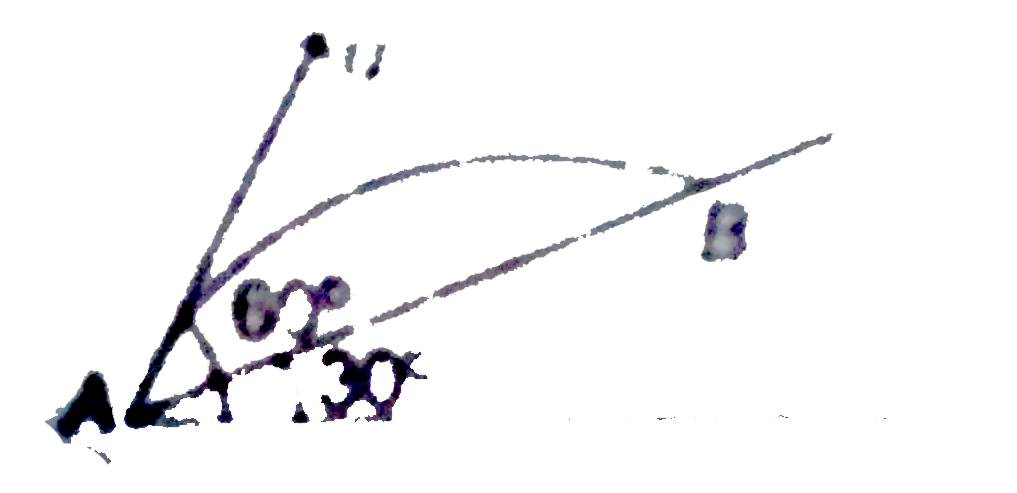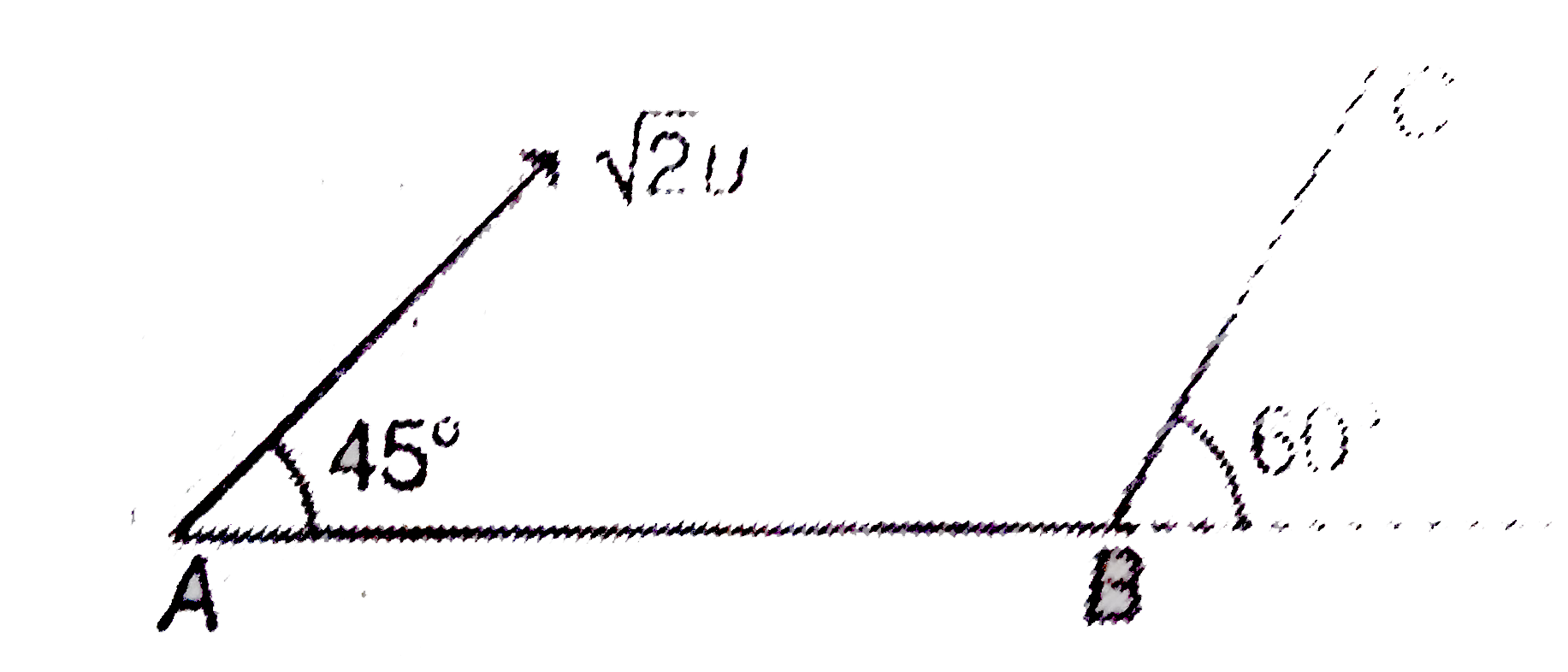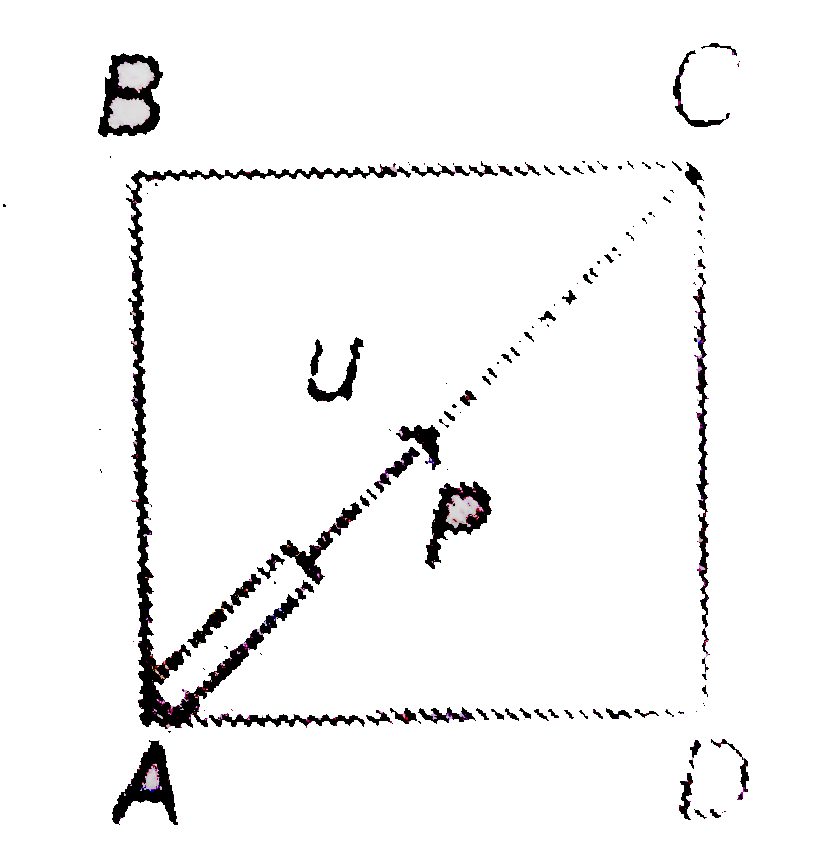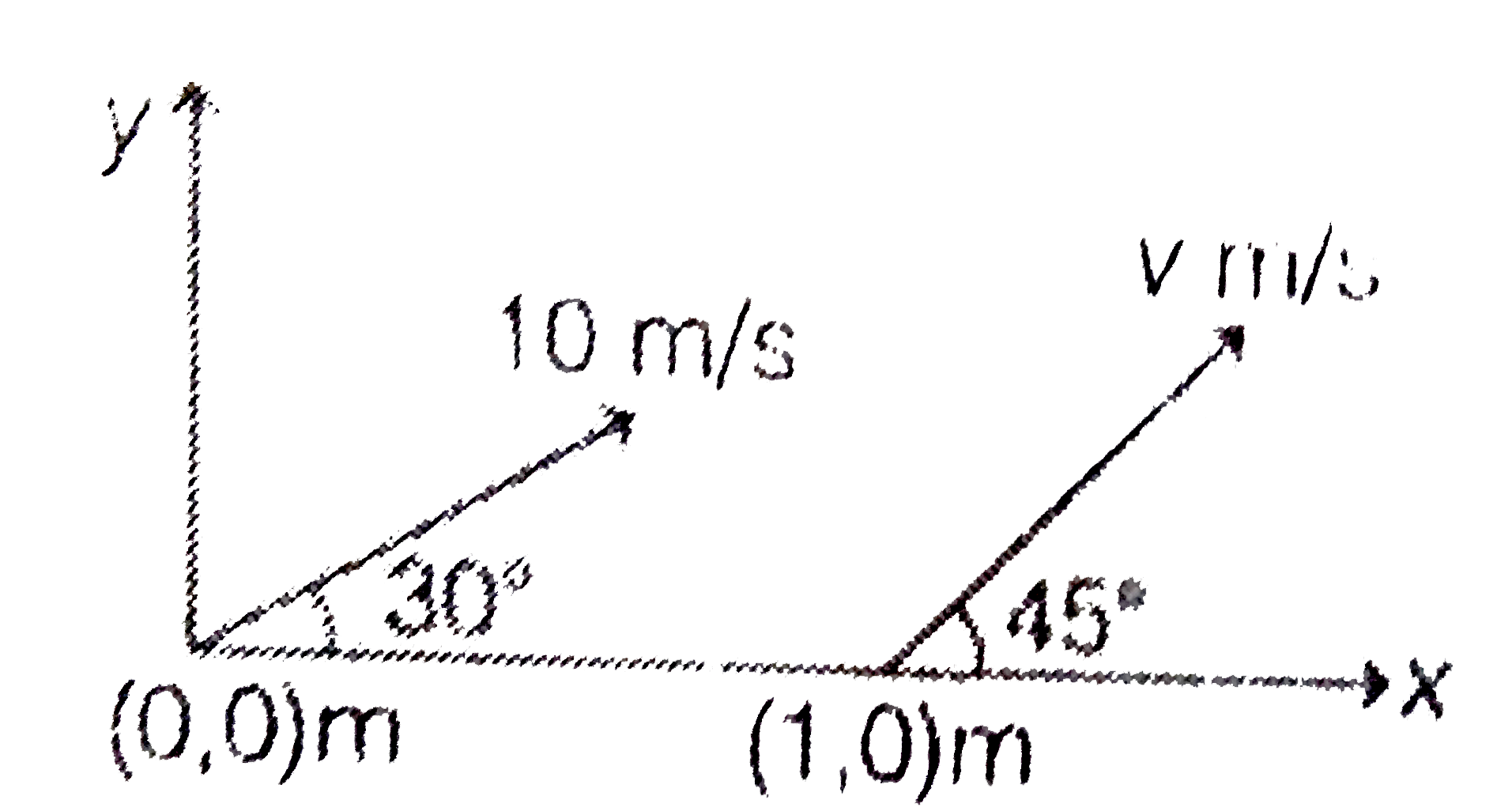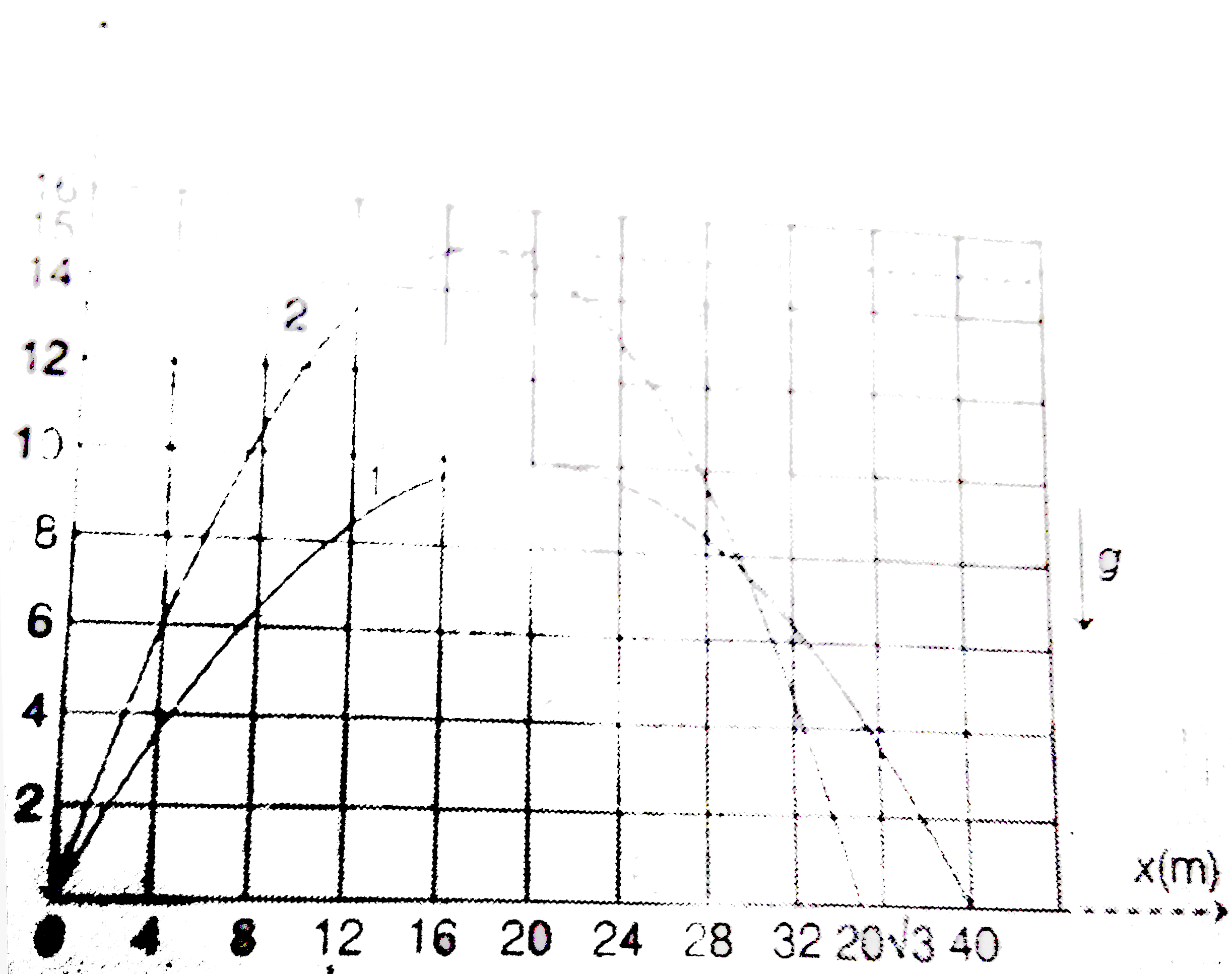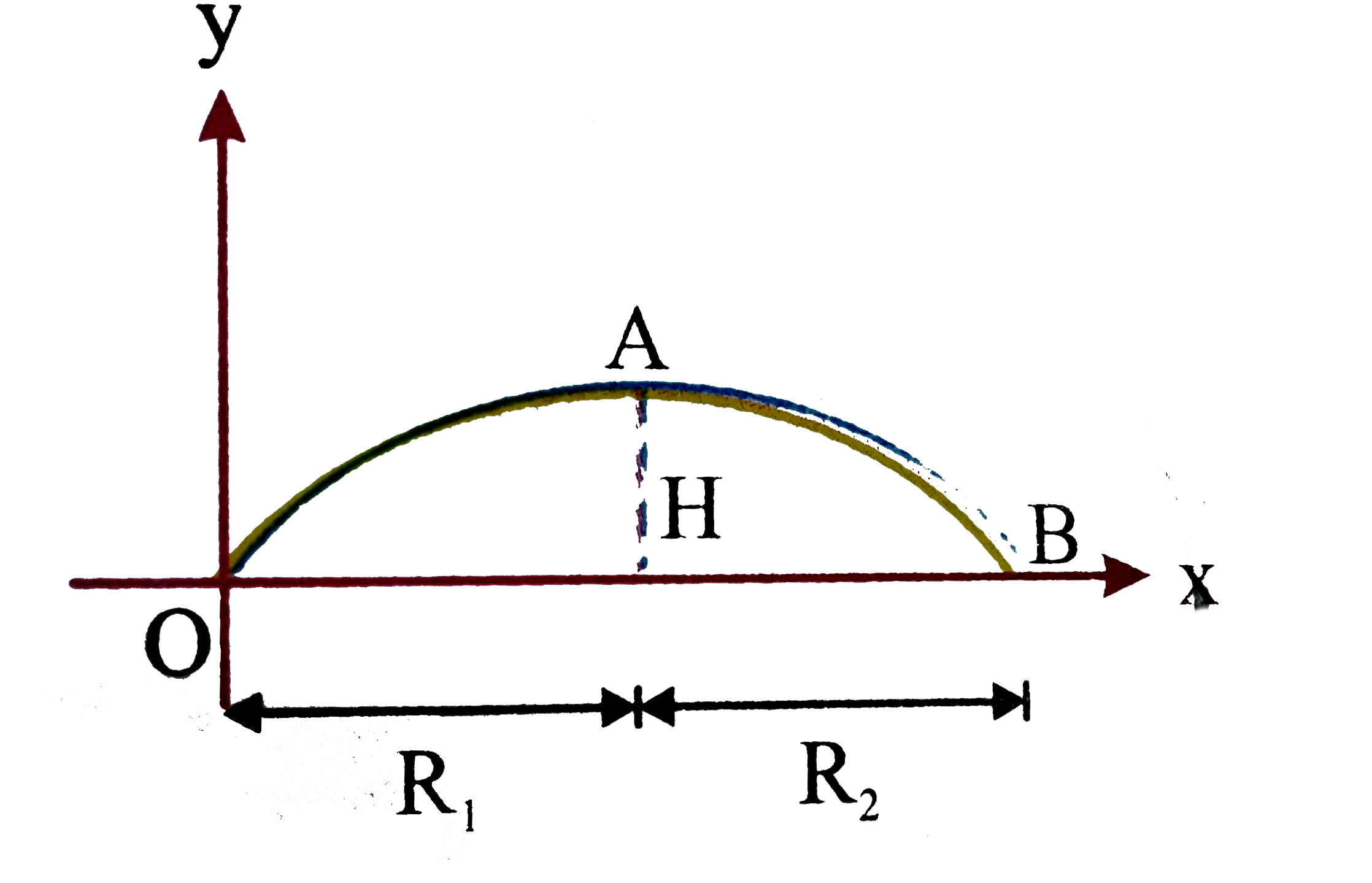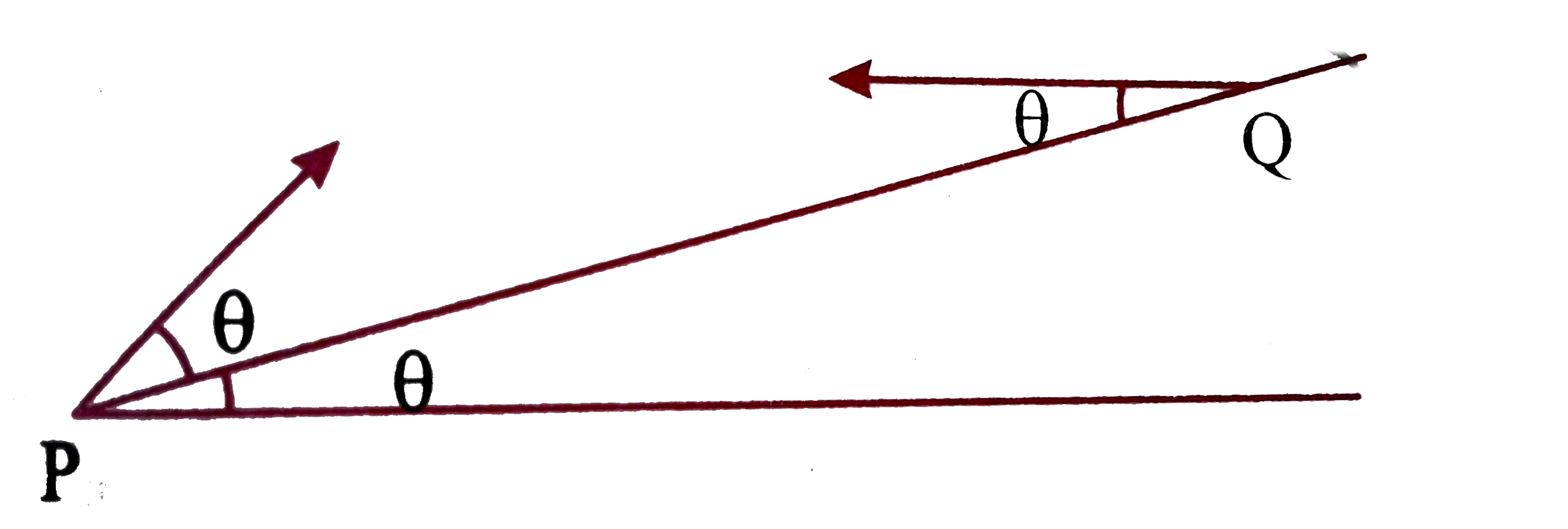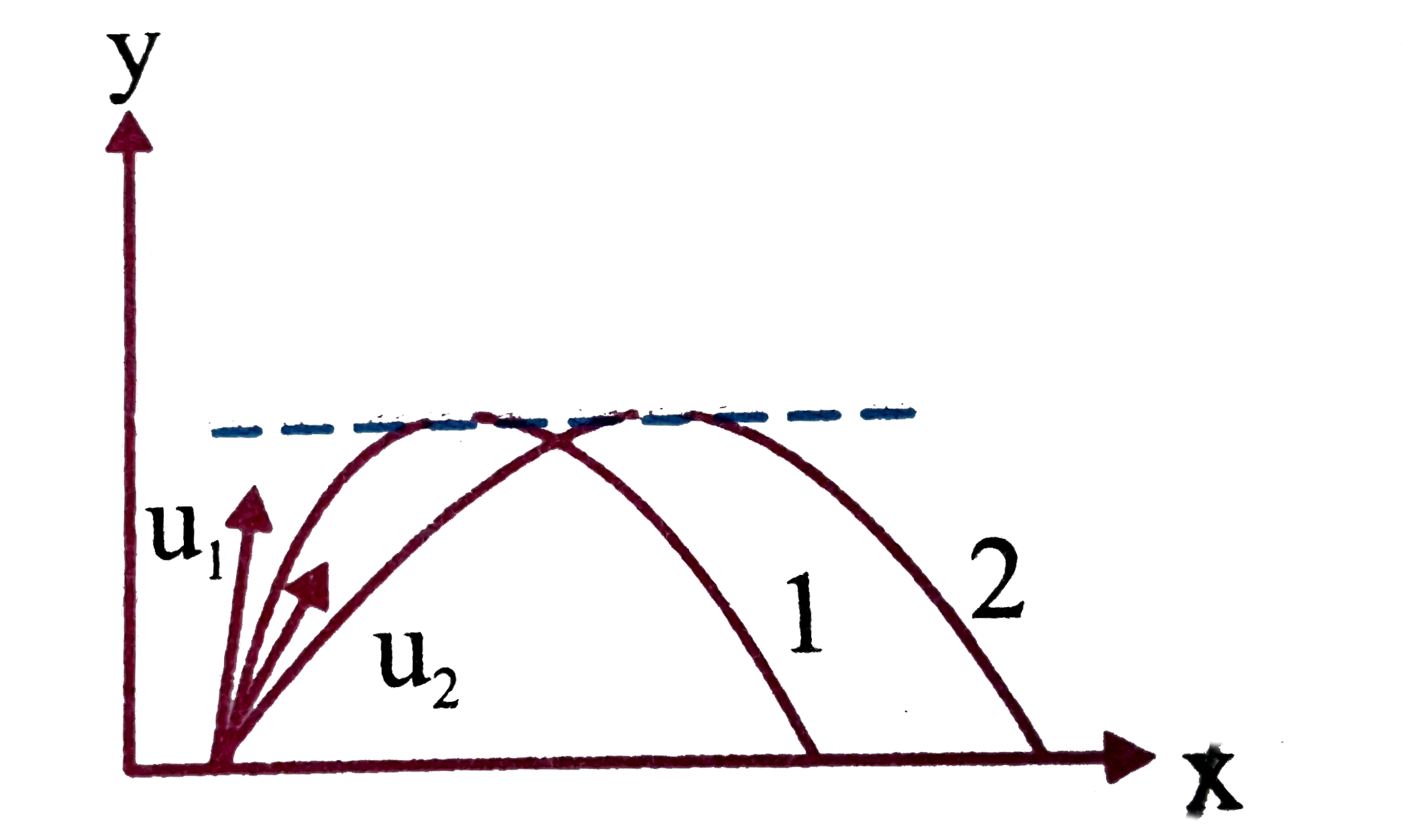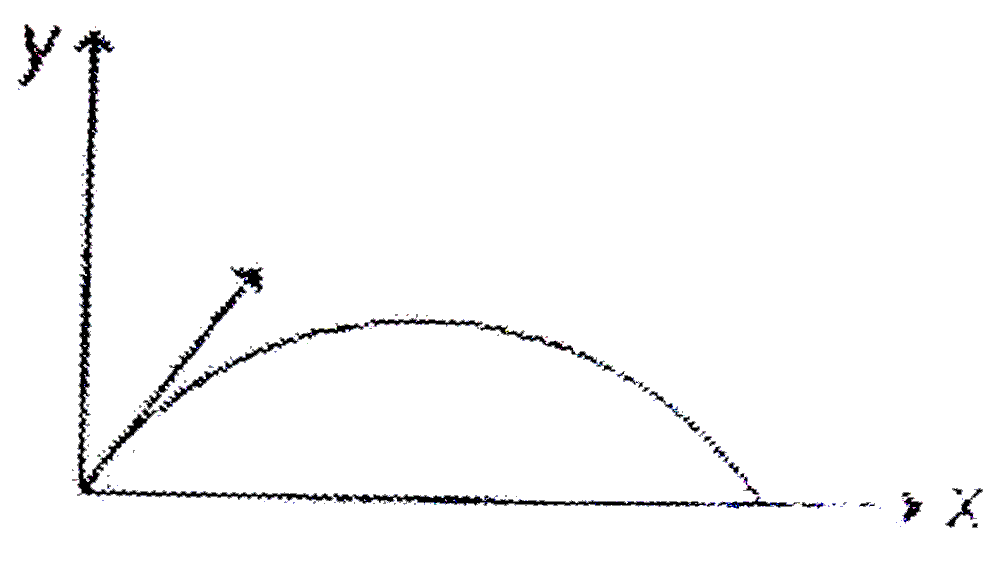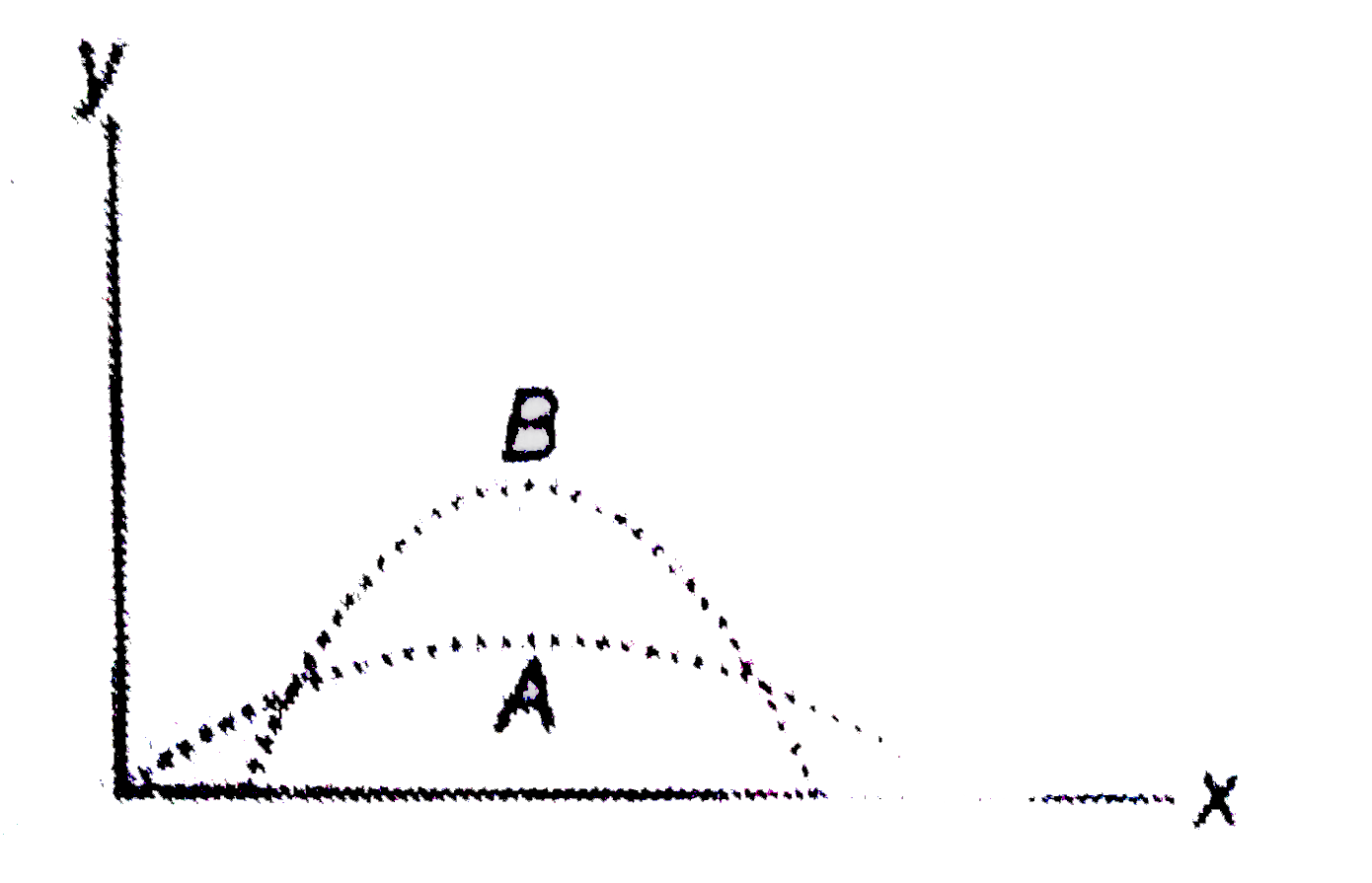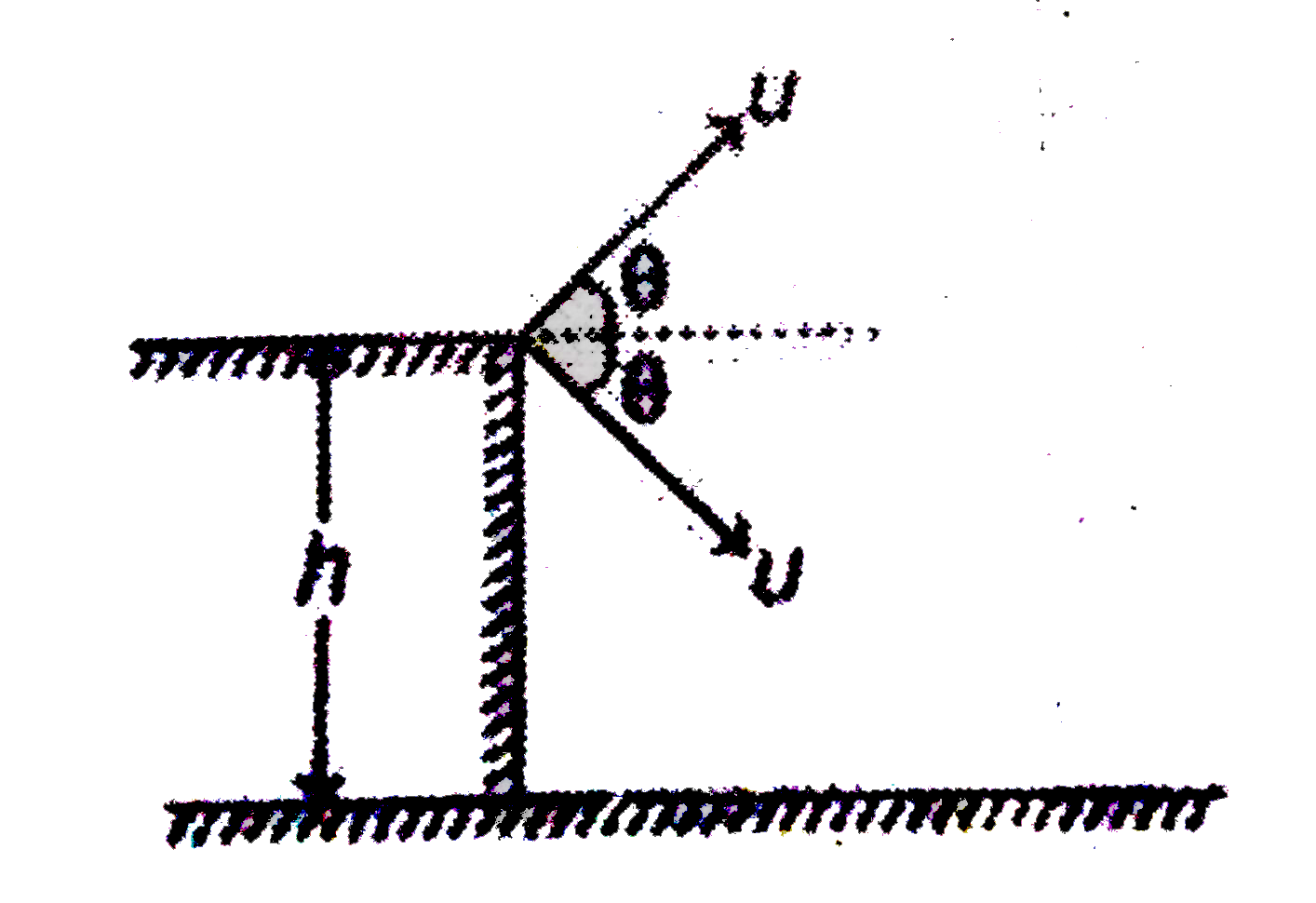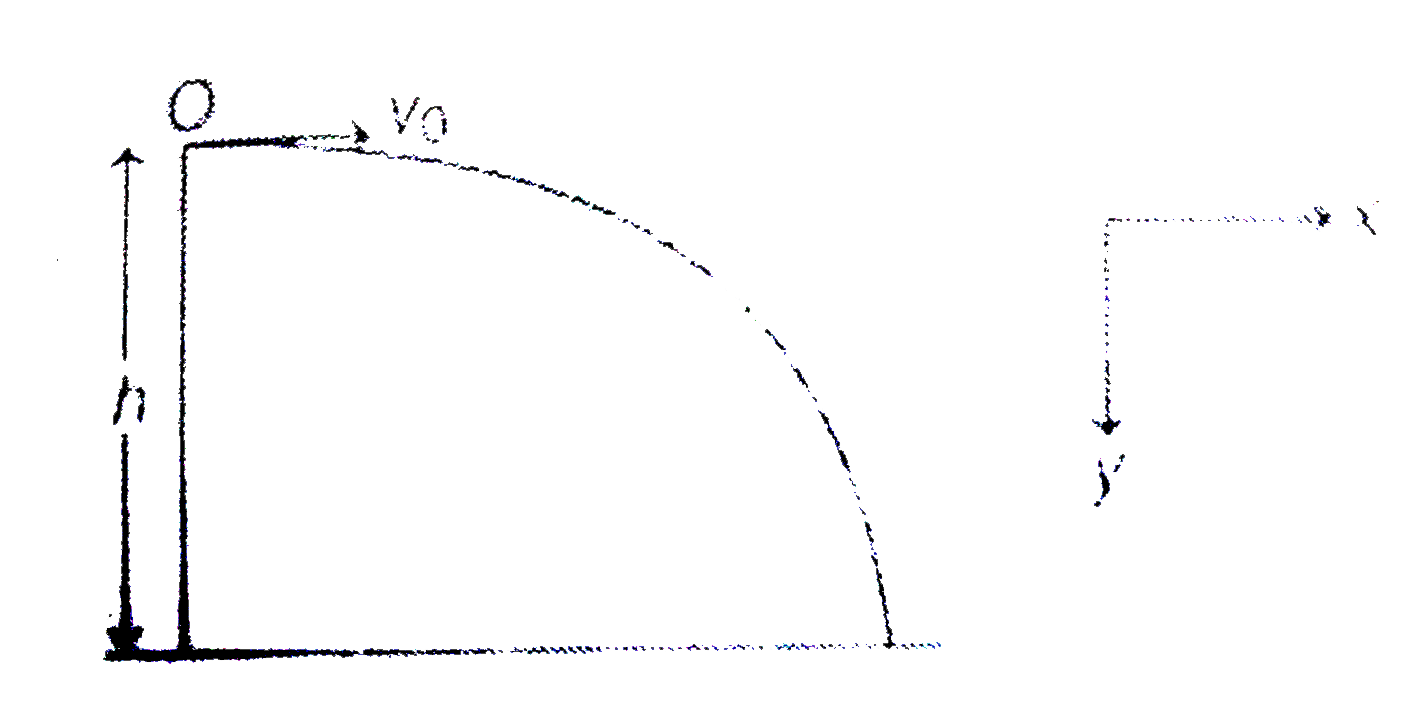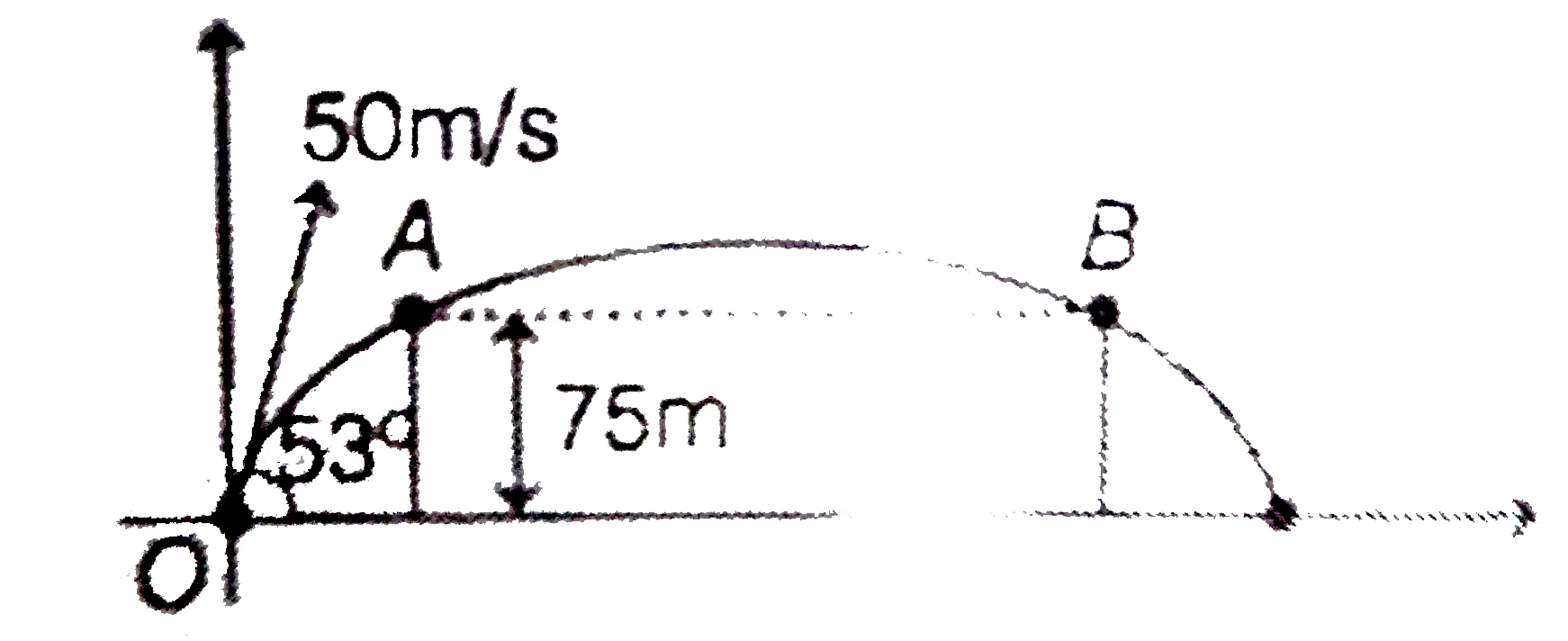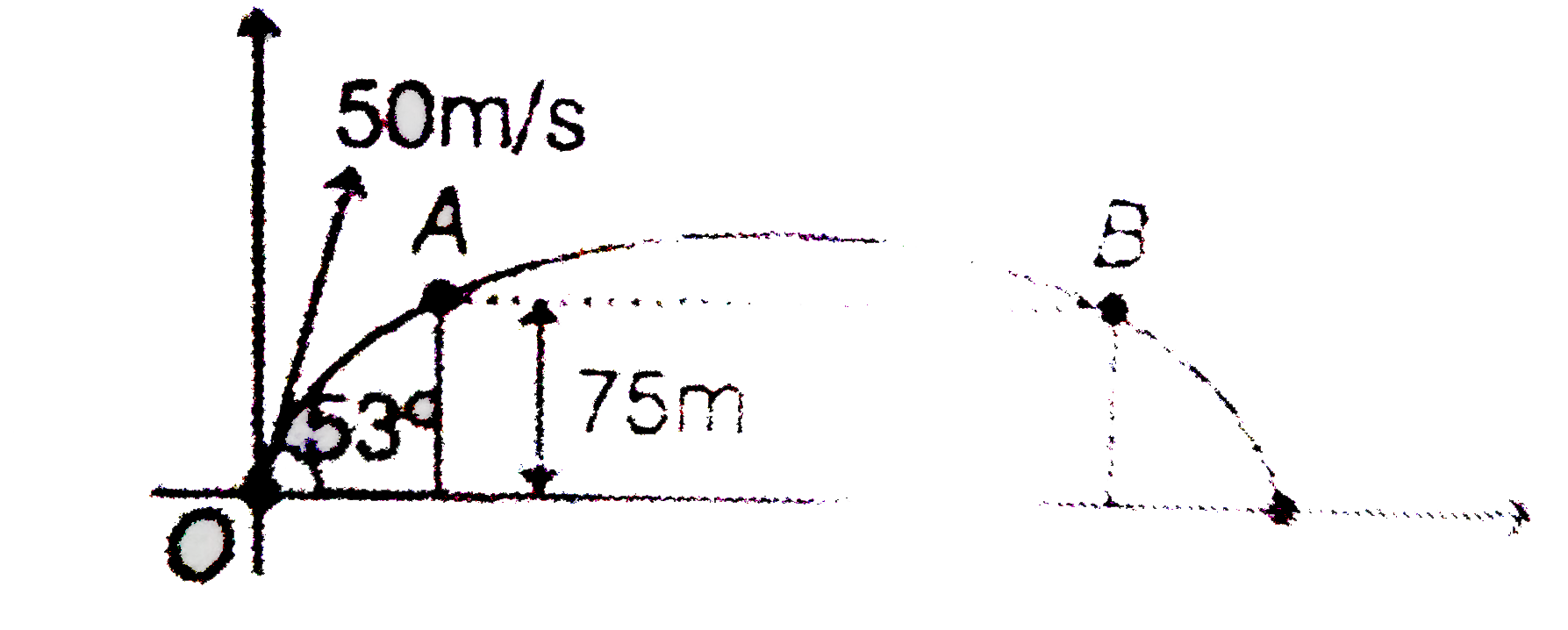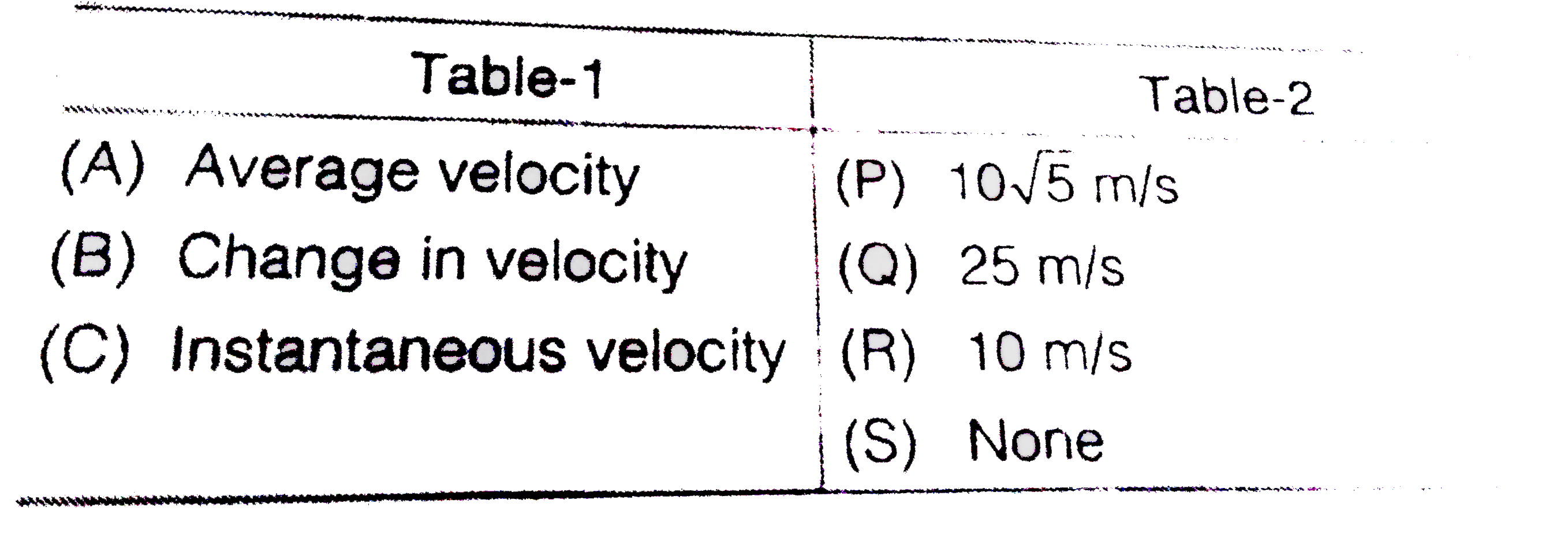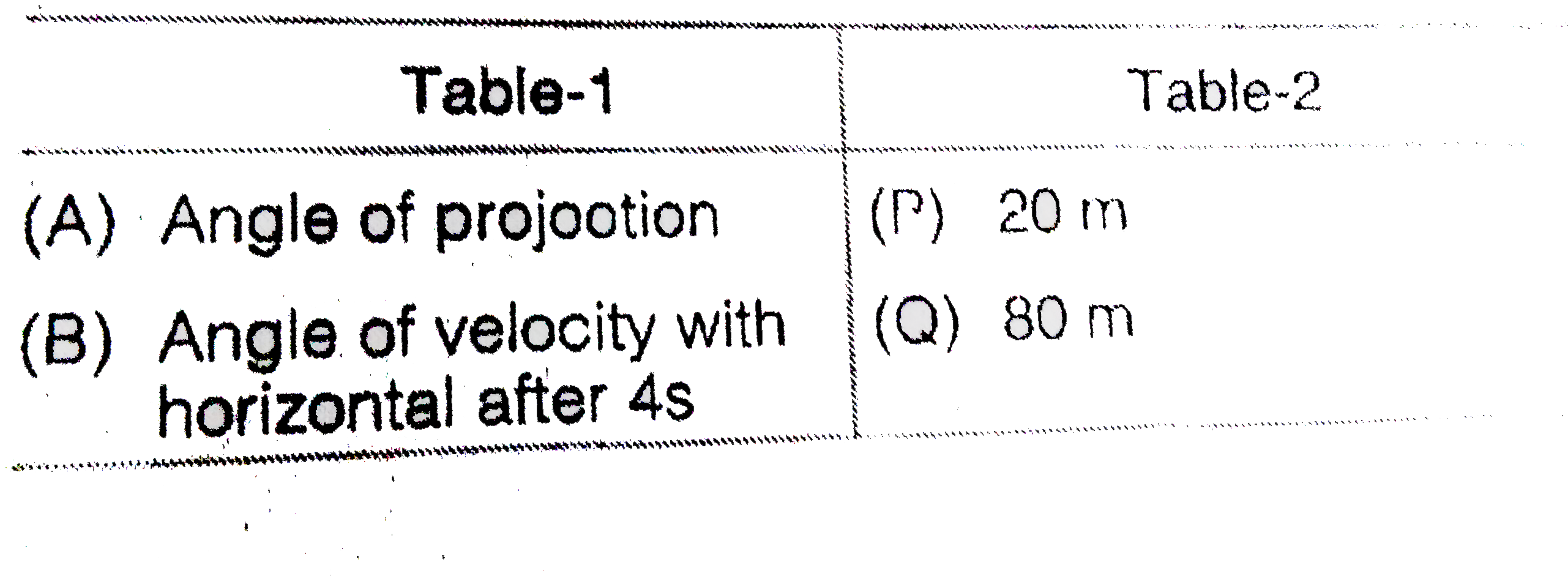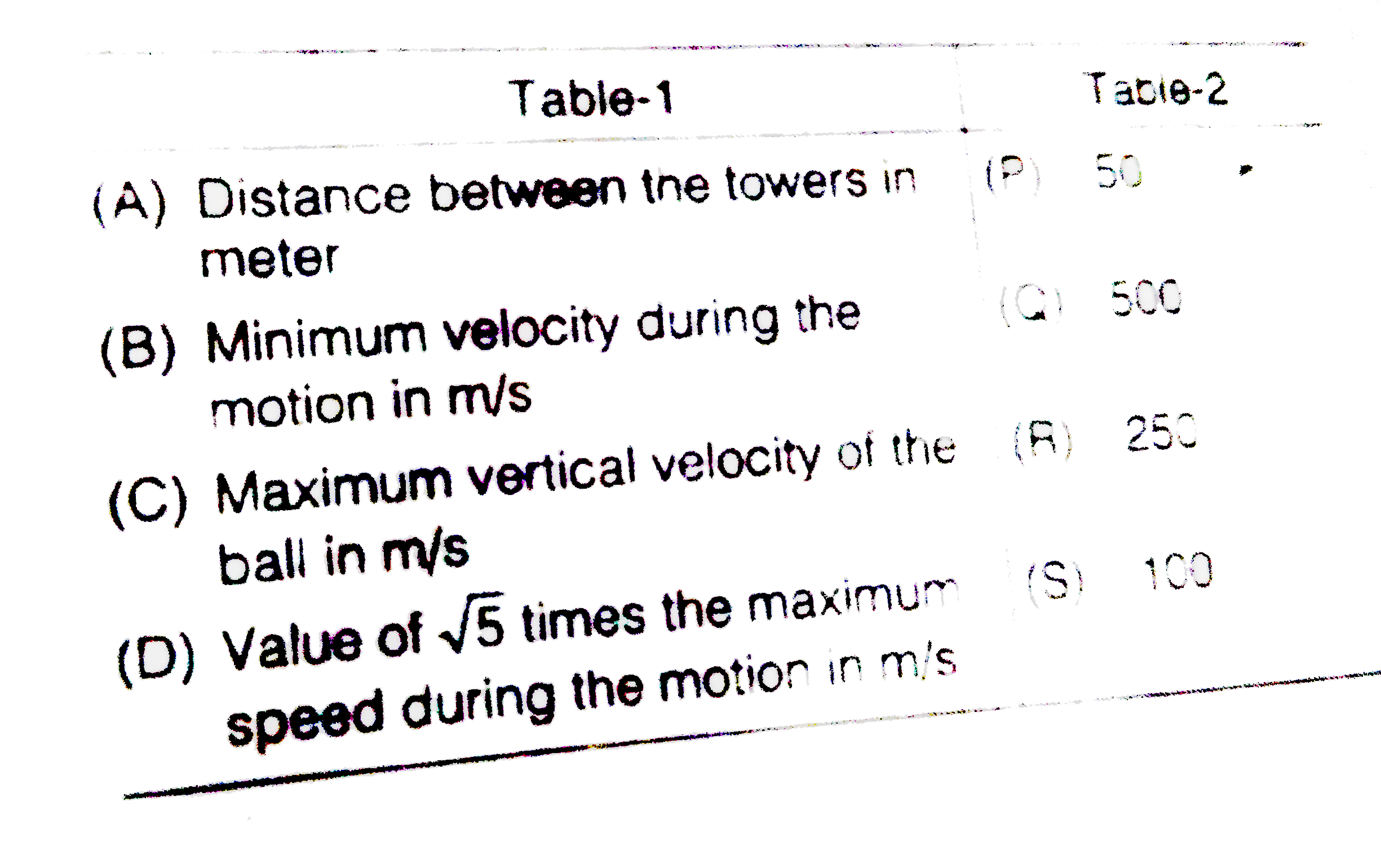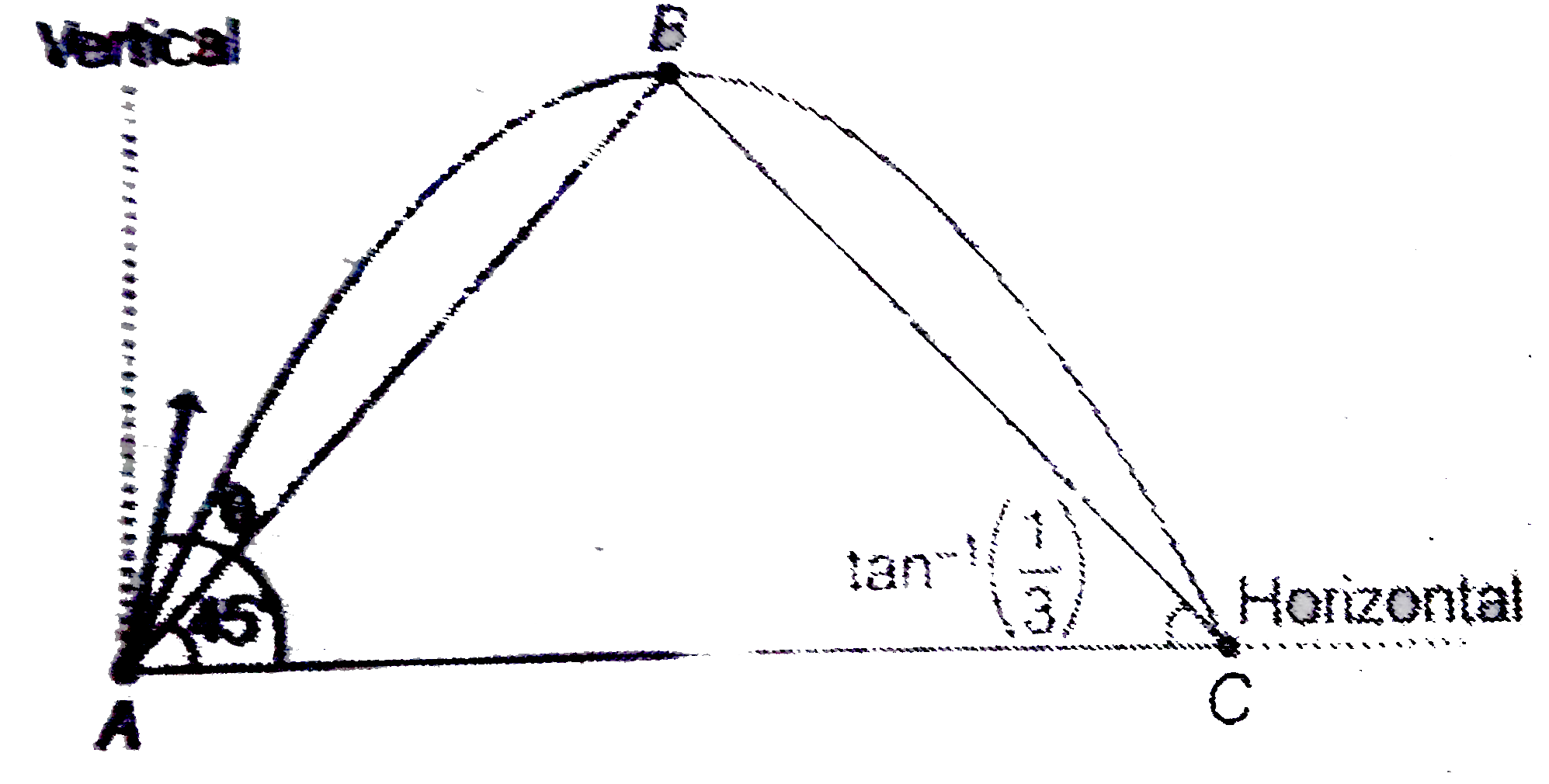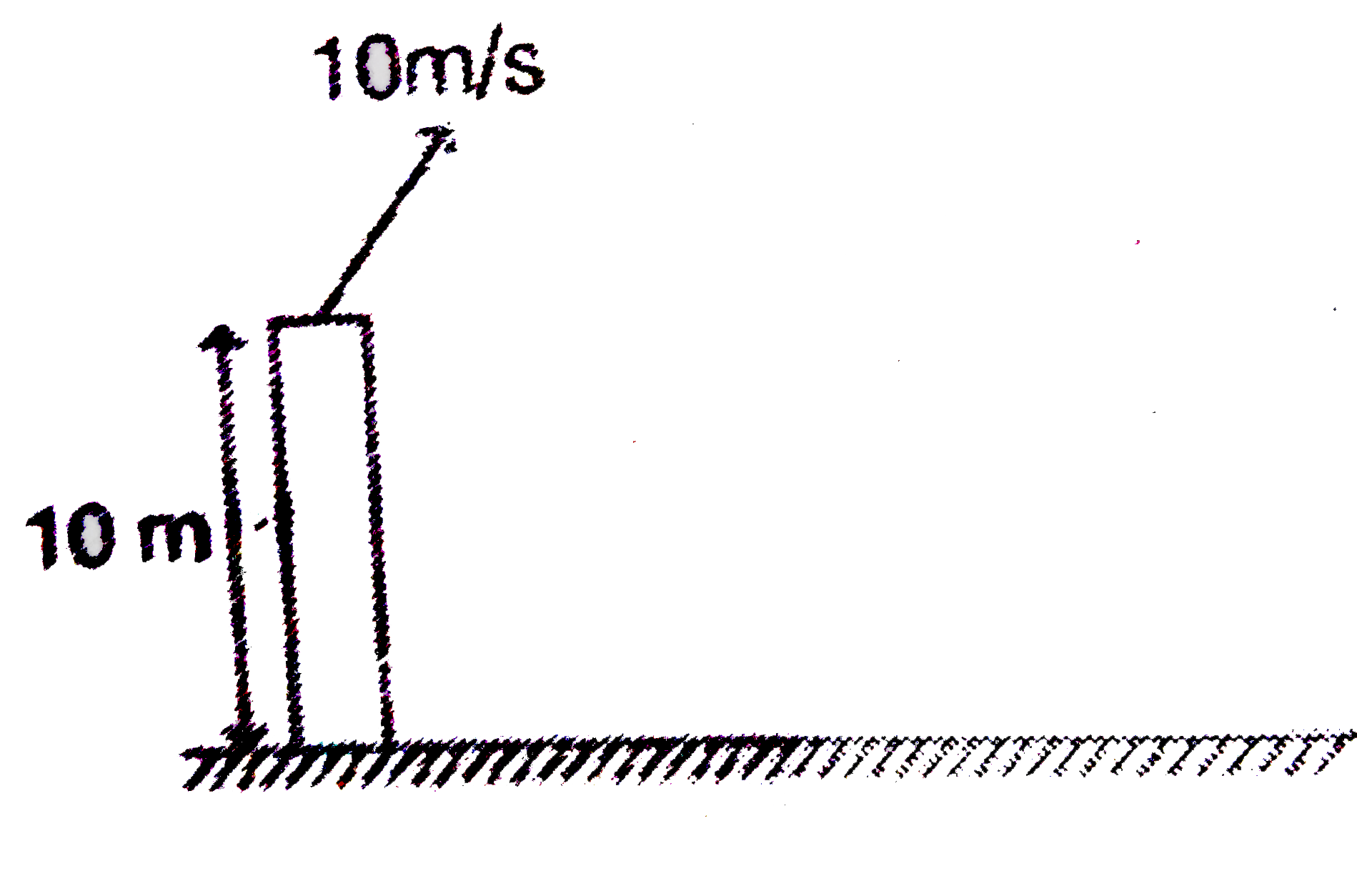MCQ_TYPE from DC PANDEY ENGLISH KINEMATICS for Class 11
| Class 11 | PHYSICS |
| Chapter | KINEMATICS |
| DC PANDEY ENGLISH | MCQ_TYPE |
| Medium | English |
| Academic Year | 2023-2024 |
Question 13
The trajectory of a projectile in a vertical plane is y=ax−bx2, where aandb are constant and xandy are, respectively, horizontal and vertical distances of the projectile from the point of projection. The maximum height attained by the particle and the angle of projectile from the horizontal are.View SolutionQuestion 20
A very broad elevator is going up vertically with a constant acceleration of 2m/s2. At the instant when its velocity is 4m/s, a ball is projected from the floor of the lift wht as of 4m/s relative to the floor at an elevation of 30∘. The time taken by the ball to return the floor is (g=10m/s2)View SolutionQuestion 23
Two particles A and B projected simultaneously from a point situated on a horizontal place. The particle A is projected vertically up with a velcity vA while the particle B is projected up at an angle 30∘ with horizontal with velocity vB. After 5s the particles were observed moving mutually perpendicular to each other. The velocity of projection of the particle vAandvB respectively are:View SolutionQuestion 37
Two inclined planes OA and OB of inclinations α and β equal to 30∘ are as shown in the figure. A particle is projected at an angle of 90∘ with plane OA from point A and it strikes the plane OB at point B normally. Then find the speed of projection u in m/s.
(Given that OA=OB=20cm and g=10m/s2)
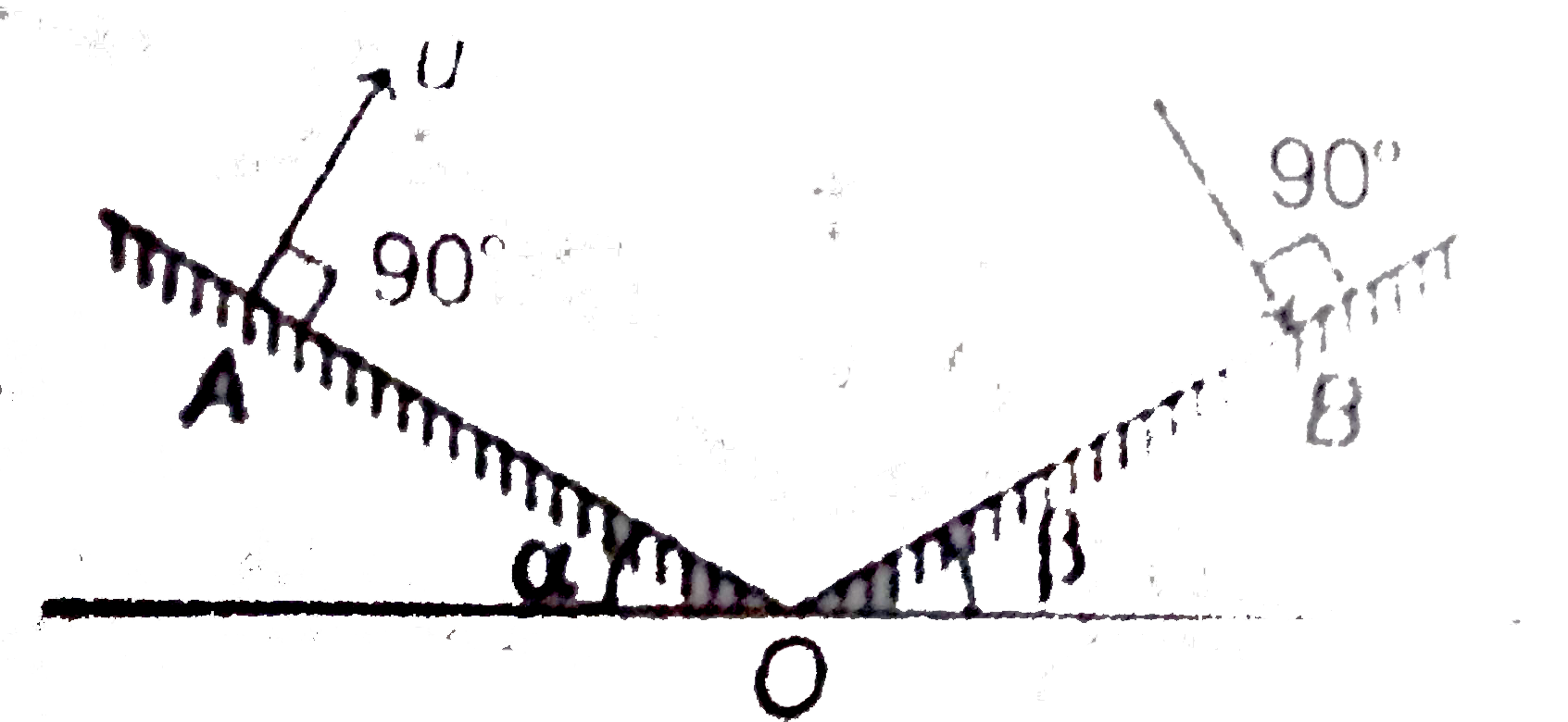 View Solution
View SolutionQuestion 38
An elavator is going up vertically with a constant accelerartion of 2m/s2. At the instant when its velocity is 4m/s a ball is projected from the floor of the elavator with a speed of 4m/s relative to the floor with an angular eleavation of 60∘. The time taken by the ball to return the floor is (g=10m/s2)View SolutionQuestion 39
Two children are playing a game in which they try to hit a small box using a spring loaded machine gun, which is fixed rigidly to a table at a height h above the top of the box. The spring has spring constant k and the box is at a horizontal distance l from O. The first child compresses the spring a distanc x0 and find that the marble falls short of box by a horizontal distance y. The second child compreses the spring by an extra amount Δx so that marble lands in the box. The value of Δx is
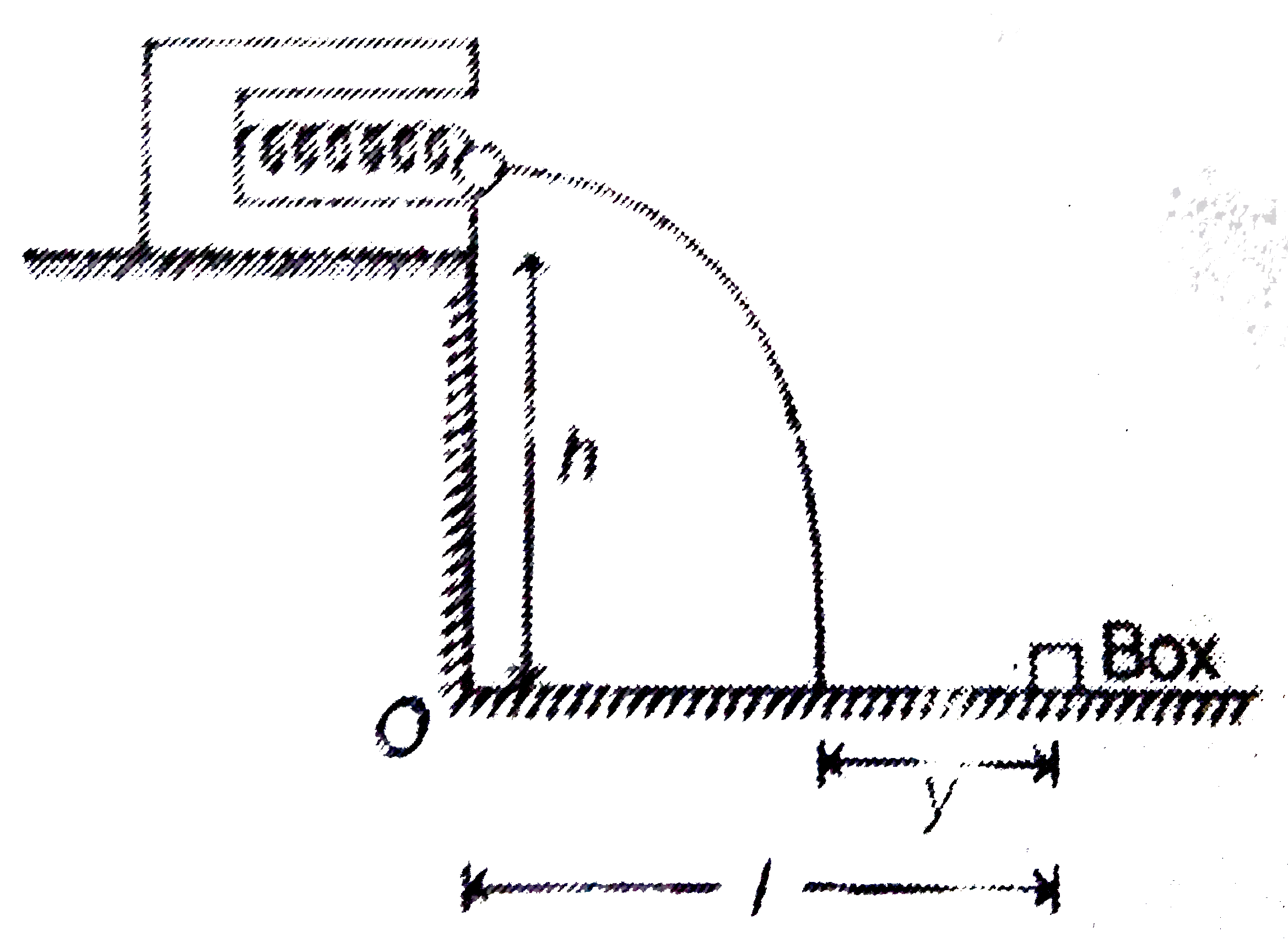 View Solution
View SolutionQuestion 52
Projectile motion is a combination of two one-dimensional motion: one in horizontal and other in vertical direction. Motion in 2D means in a plane. Necessary condition for 2D motion is that the velocity vector is coplanar to the acceleration vector. In case of projectile motion, the angle between velocity and acceleration will be 0∘<θ<180∘. During the projectile motion, the horizontal component of velocity ramains unchanged but the vertical component of velocity is time dependent. Now answer the following questions:
A body is projected at angle of 30∘ and 60∘ with the same velocity. Their horizontal ranges are R1 and R2 and maximum heights are H1andH2, respectively, then
A body is projected at angle of 30∘ and 60∘ with the same velocity. Their horizontal ranges are R1 and R2 and maximum heights are H1 and H2, respectively, then View SolutionQuestion 55
Consider a shell that has a muzzle velocity of 45ms−1 fired from the tail gun of an airplane moving horizontally with a velocity of 215ms−1 . The tail gun can be directed at any angle with the vertical in the plane of motion of the airplane. The shell is fired when the plane is above point A on ground, and the plane is above point B on ground when the shell hits the ground. (Assume for simplicity that the Earth is flat)View SolutionQuestion 59
A person is a playing a game that requires throwing an object onto a ledge. The ledge is at a distance d and a height d/2 above the point O. You may neglect air resistance. Once the object reaches the ledge it slows down with constant deceleration and comes to stop after sliding a distance 's'. Object velocity becomes horizontal when it reaches the ledge. Which of the following statements is/are correct?
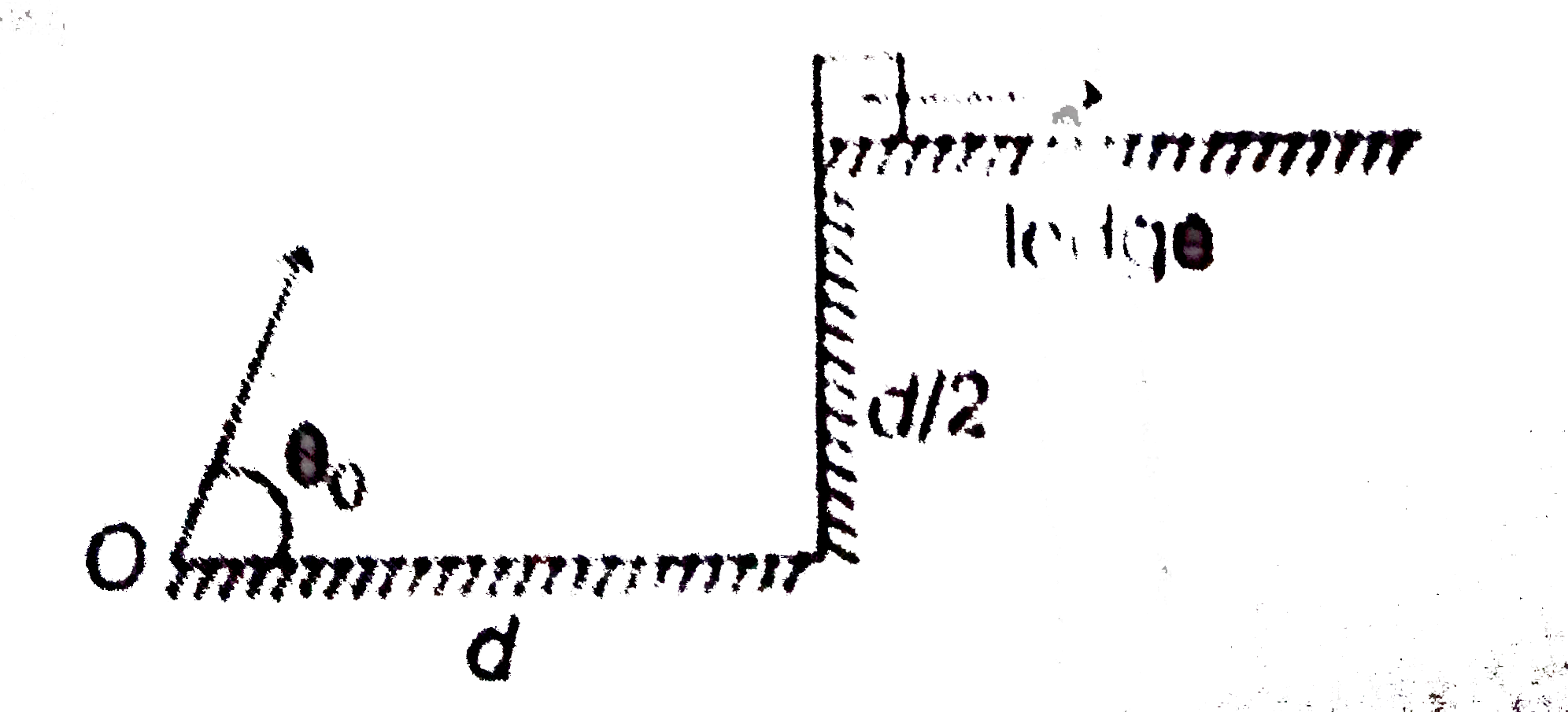 View Solution
View SolutionQuestion 62
Two projectile are thrown at the same time from two different points. One projectile thrown from the origin has initial velocity 3ˆi+3ˆj with respect to earth. The other projectile has initial velocity aˆi+bˆj with respect to earth thrown from the point (10,5).
(ˆi is a unit vector along horizontal ˆj along vertical).If the projectile collides after two seconds, then choose from following the correct options(s). All values are in SI units.View SolutionQuestion 70
There of the fundamental constant of physics are the universal gravitational constant, G=6.7×10−11m3kg−s−2, the speed of light c=3.0×108m/s and Planck's constant, h=6.6×10−34Js−1. two particles A and V are projected in the vertical plane with same initial velocity u0 fro part (0,0) and (l,-h) towards each other as shwon in figure
Minimum distance between particle A and B during motion
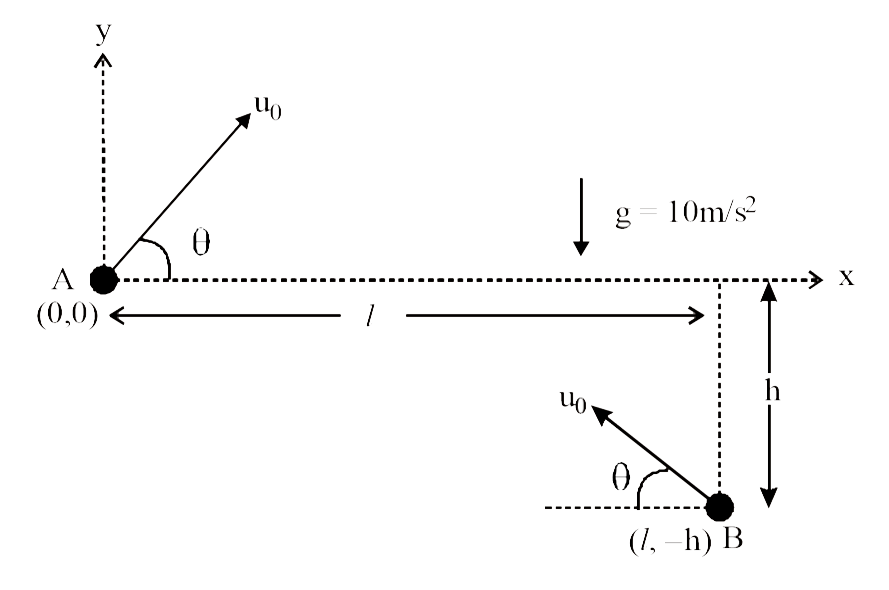 View Solution
View SolutionQuestion 71
There of the fundamental constant of physics are the universal gravitational constant, G=6.7×10−11m3kg−s−2, the speed of light c=3.0×108m/s and Planck's constant, h=6.6×10−34Js−1. two particles A and V are projected in the vertical plane with same initial velocity u0 fro part (0,0) and (l,-h) towards each other as shwon in figure
The time when separation between A and B is minimum is
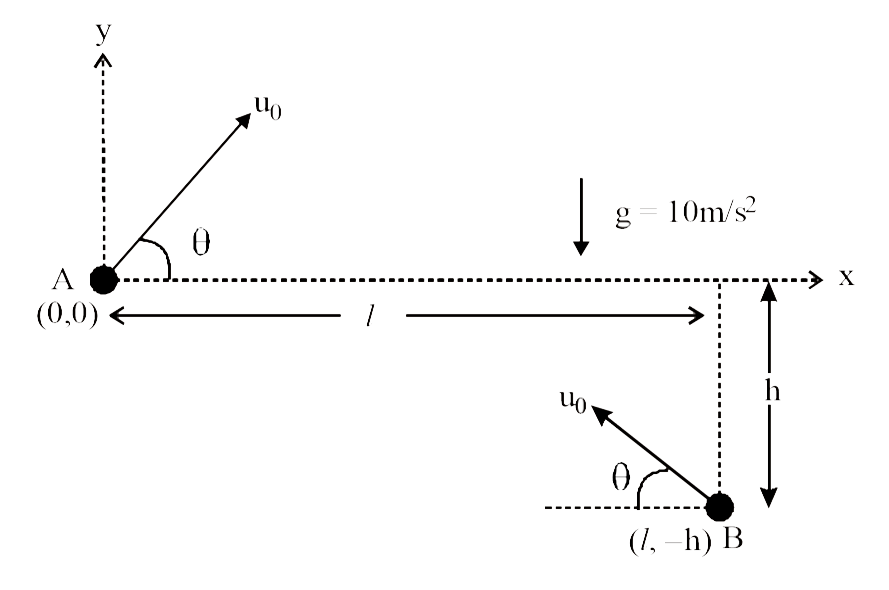 View Solution
View SolutionQuestion 72
Two friends A and b playing a game of collision of balls and throwing balls from the top of two towers simultaneously as shown in the figure. If the balls collide in air at point P and point O is treated as origin then answer the following questions (g=10m/s2)
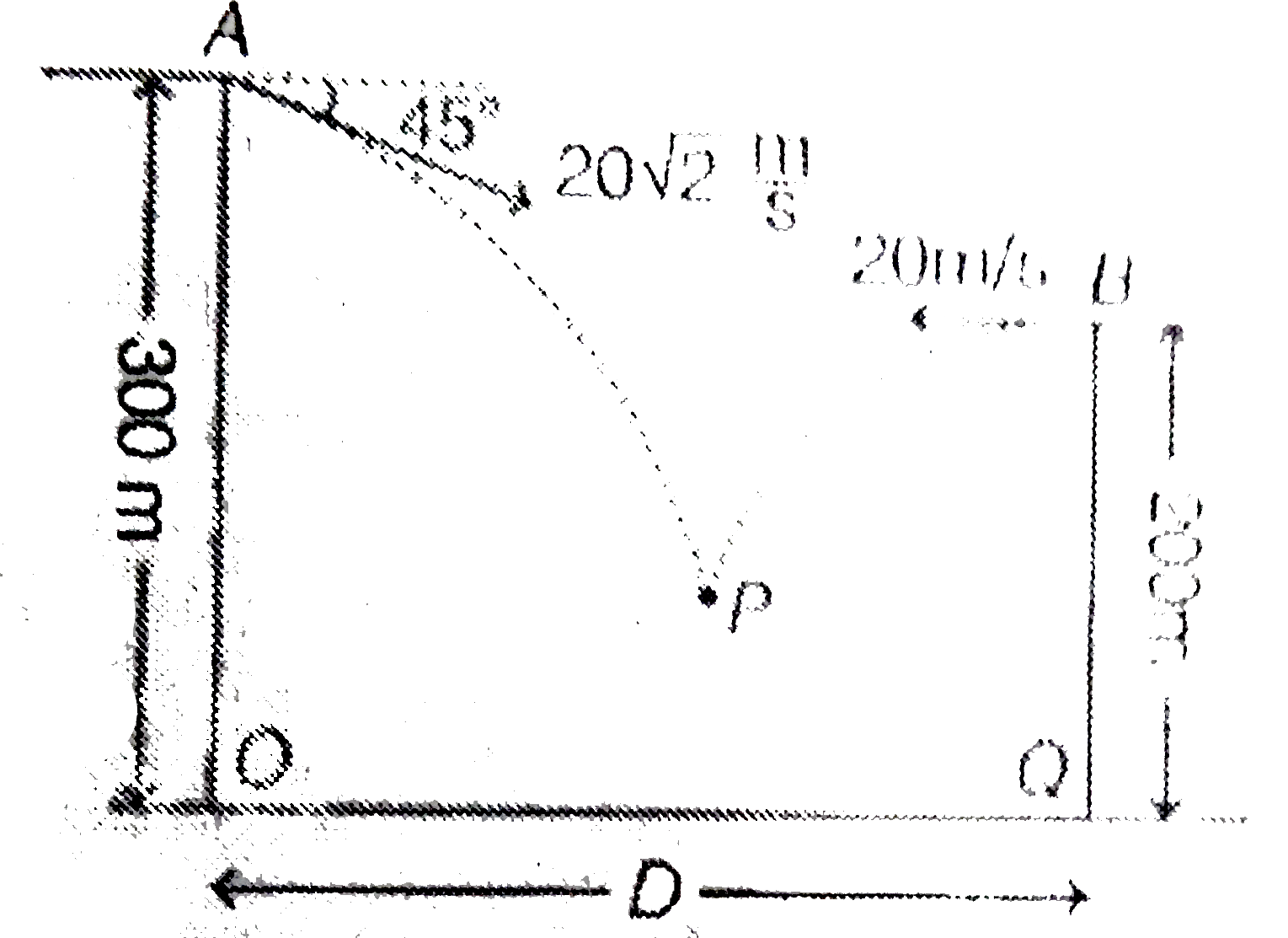
Distance D betwen the towers is: View SolutionQuestion 73
Two friends A and b playing a game of collision of balls and throwing balls from the top of two towers simultaneously as shown in the figure. If the balls collide in air at point P and point O is treated as origin then answer the following questions (g=10m/s2)

Distance D betwen the towers is: View SolutionQuestion 74
A particle of mass m is projected up from the bottom of an inclined plane with initial velocity v0 at angle 45∘ with an inclined plane of inclineation 30∘ as shown in figure. At the same time a small block of same mass m is released from rest at a height h. The particle hits the block at some point on inclined plane.
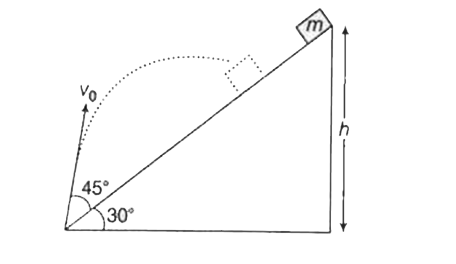
The value of height h is View SolutionQuestion 75
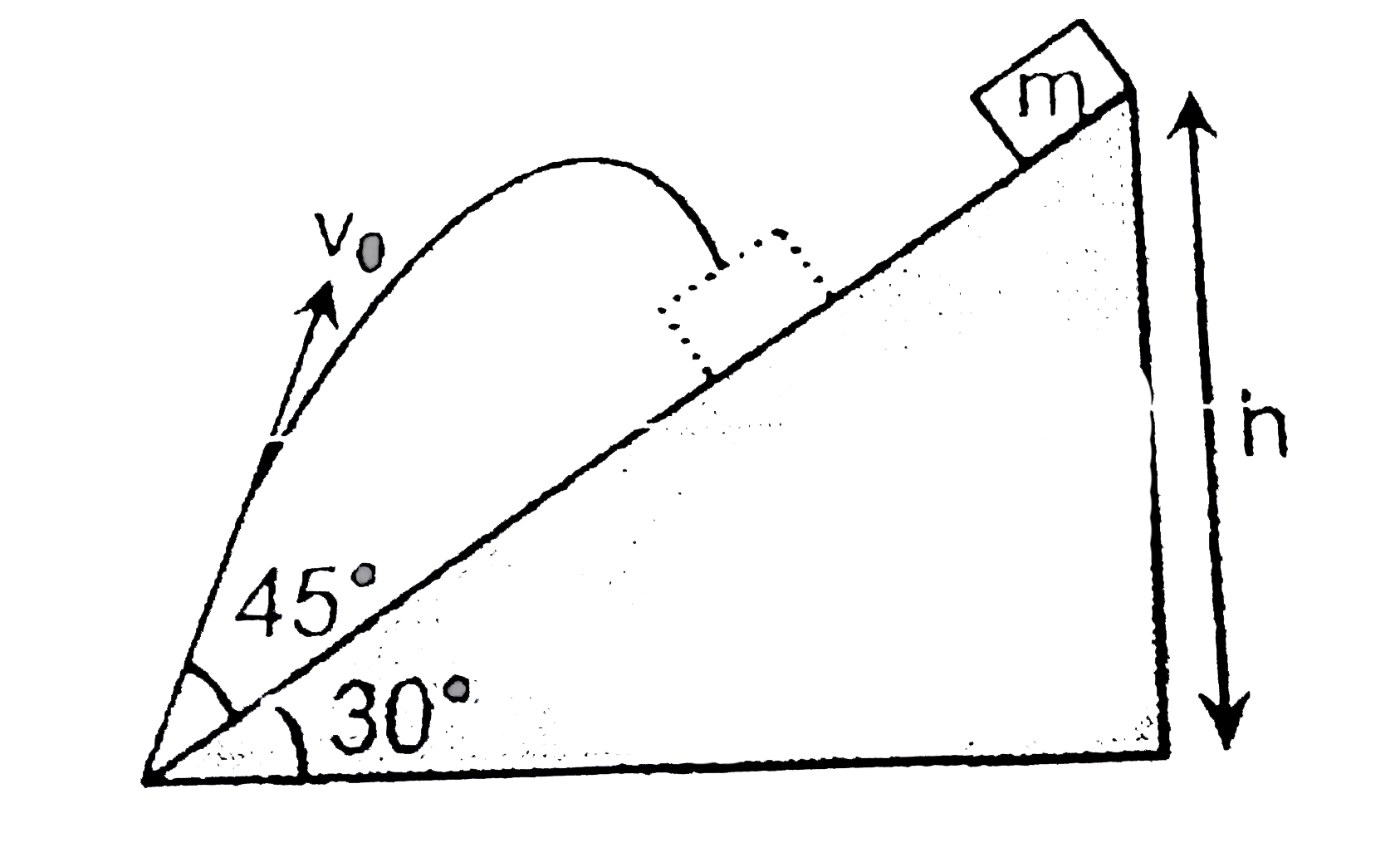
A particle of mass m is projected up from the bottom of an inclined plane with initial velocity v0 at angle 45∘ with an inclined plane of inclination 30∘ as shown in figure. At the same time a small block of same mass m is released from rest at a height h, the particle hits the block at some point on the inclined plane. Neglect friction at inclined.
Q. The value of height h isView SolutionQuestion 79
A particle is projected with velocity 2(√gh), so that it just clears two walls of equal height h which are at a distance of 2h form each other. Show that the time of passing between the walls is 2(√hg). [Hint : First find velocity at height h. Treat it as initial velocity and 2h as the range. ]View SolutionQuestion 80
Two inclined planes AB and BC are at inclinations of 60∘ and 30∘ as shown in the figure. The two projectiles are thrown simultaneously from A and C with speed 2m/s and v0 respectively. They strike at B with same speed. If length of AB is 1√3mand BC is 1m, then find the value of v0 ( in m/s)
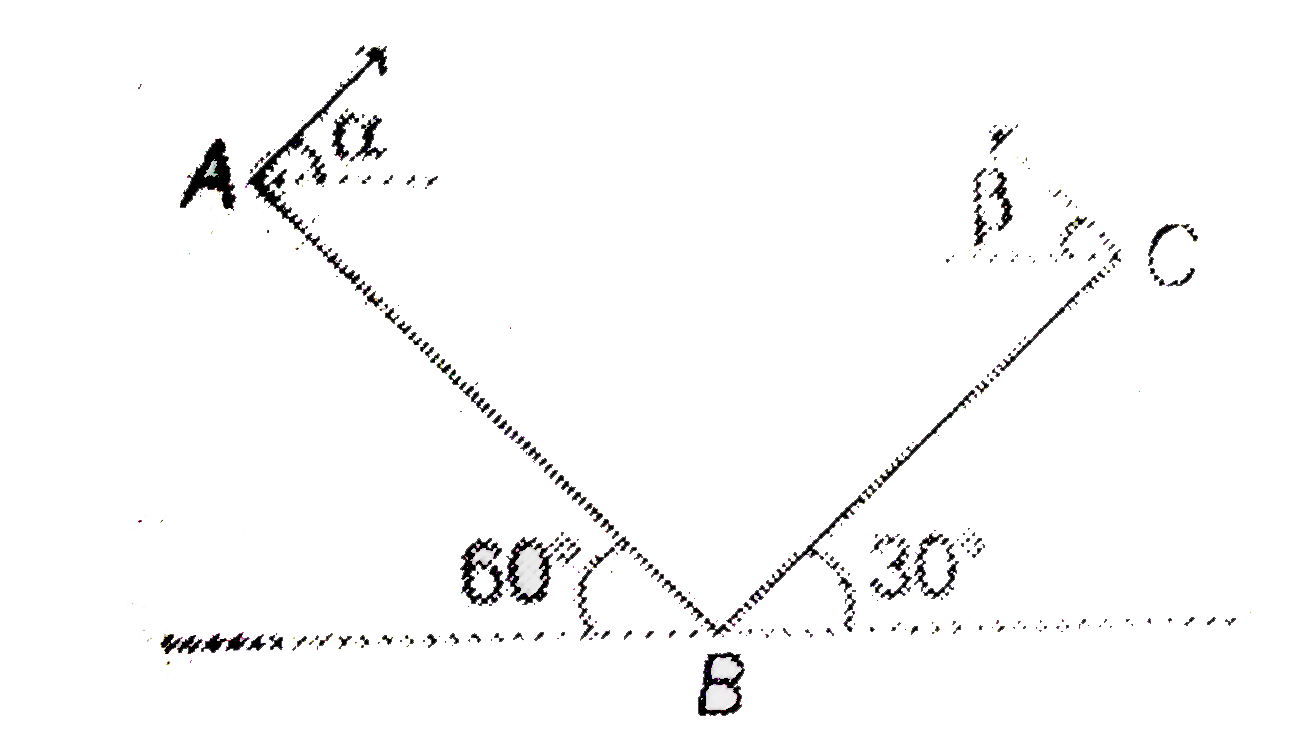 View Solution
View Solution
All Exercises from DC PANDEY ENGLISH Class 11 PHYSICS KINEMATICS
- ASSERTION AND REASON
- COMPREHENSION
- EXERCISE 6.1
- EXERCISE 6.2
- EXERCISE 6.3
- EXERCISE 6.4
- EXERCISE 6.5
- EXERCISE 6.6
- EXERCISE 6.7
- EXERCISE 6.8
- EXERCISE 6.9
- MORE THAN ONE CORRECT
- OBJECTIVE
- SUBJECTIVE
- SUBJECTIVE QUESTIONS
- COMPREHENSION_TYPE
- EXAMPLE
- EXAMPLE TYPE 1
- EXAMPLE TYPE 2
- EXAMPLE TYPE 3
- EXAMPLE TYPE 4
- EXAMPLE TYPE 5
- EXAMPLE TYPE 6
- EXAMPLE TYPE 7
- INTEGER_TYPE
- MATCH THE COLUMN
- MCQ_TYPE
- MISCELLANEOUS EXAMPLE
- SCQ_TYPE
